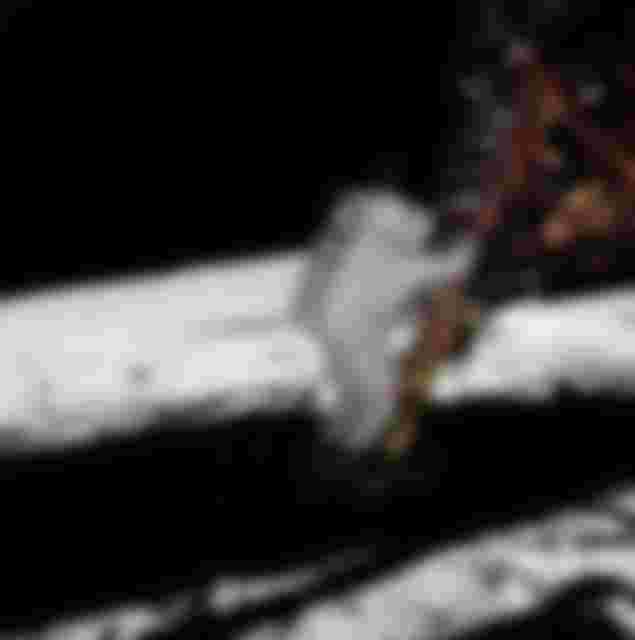Doubts. Don't believe everything you are told

Cogito ergo sum
I still remember when my maternal grandmother asked me, "Do you think man went to the moon?
She, a petite woman in her eighties and still very active looked at me expectantly.
I replied, of course, Grandma.
I was a teenager in the late seventies, and I was fascinated by the full-color albums of the earth as seen from space taken by the Apollo missions.
She had witnessed the passage of Halley's comet twice (1911 and 1986), and being a farmer used to struggling with the environment, she also had her eyes on the night sky.
Nevertheless, she smiled at me and said, I don't believe it.
That conversation (supposedly inconsequential between two people of different generations) came to me again after a pleasant chat within a post I recently uploaded in noise.cash.
The point at issue (at least for me) was the inability of the human being to validate reality through the senses. As well as how one adopts a belief system and truths without question.
Less than fifteen days ago, I watched for the first time without interruption Stanley Kubrick's magnificent film, 2001: A Space Odyssey, released in 1968.
Two of my sisters were born in 1969, the same year of the moon landing, and when Neil Armstrong famously said, "that's s one small step for man, one giant leap for mankind." The date was July 20.
Fun fact, my sisters are not twins. One was born in January and the other in December. My parents wasted no time. Ha ha ha ha.
Instead, (manned) lunar exploration after the Apollo program shutdown took a sizable break. As did its counterpart, the defunct Soviet Union.
If you saw Kubrick's film, now over fifty years old, you will agree with me on how well done it is. You will even see artifacts similar to today's iPads. It seems that this artwork ages very well, maintaining an undeniable freshness.
I doubt my grandmother ever saw the film. Let alone knew about the rumor about the simulation that Kubrick supposedly made for the US government for the famous Apollo 11 moon landing.
I will never know my grandmother's arguments for not believing in the moon landing. One must ask the right questions at the right time and not be left guessing.
Well, in my defense, I was a teenager distracted by other things.
Before the pandemic (on web forums and YouTube), a controversy between people who believe the earth is flat and the dominant official earth-spherical position with a tradition of at least 2500 years was rekindled.
I wonder, which side would my late grandmother support today?
Someone would say, "Man, it's obvious, the Terraplane's."
Maybe! But I wouldn't be so sure.
People rely on what they know and tend to think of those who don't share their beliefs as they do are fools.
I wonder, who certifies that what one knows is true?
Yes, man's knowledge has come a long way, especially in the last few decades. But even the history we know about it has been written and rewritten by people with interests.
Of course, it is frustrating not to trust anything.
Although, let's be honest. Tell me, how would your life change if the earth was flat and it was proven that man had never set foot on the moon?
One would continue to live circumstances beyond our control.
I do not know what is better, whether to live dragged by the current without knowing if we will reach a high waterfall. Or swimming against the current (hopefully) towards the shore.
In any case, it is not superfluous to doubt what affects you directly and to look for ways to avoid the traps and obstacles on the way to the truth.
So, do not embark on the fruitless debate. In the end, the truth always comes out, or at least; a truth conditioned by our limited senses.
Also, don't forget that you have at your disposal the ability to think for yourself.
It is probable that one lives in an illusion or is part of the mind of someone unknowable.
What does it matter?
Still, one enjoys an ephemeral transcendence unrepeatable and worth living.
Doubt everything, but live without seeming crazy.

An original article by @Jnavedan
The thumbnail by Fernando Prado on Pixabay
Cover image by WikiImages on Pixabay
I end by thanking all my colleagues in the community, who add value every day here. As well as all my sponsors for believing in the content I share with you.


Well we mostly rely on experts, but sometimes depending on multiple variables, experts can fail. All we can do is count the odds considering the information we have available at this particular time. As time passes, new information can appear, and as you said, the truth will eventually shine.